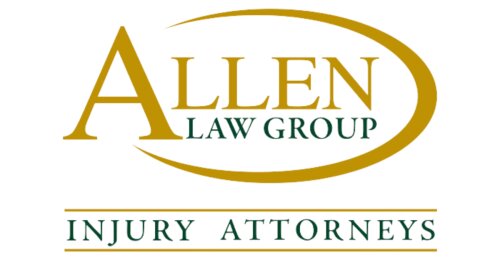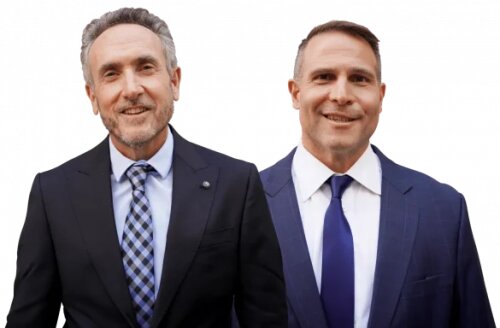Best Defamation Lawyers in Chicago
Share your needs with us, get contacted by law firms.
Free. Takes 2 min.
List of the best lawyers in Chicago, United States
About Defamation Law in Chicago, United States:
Defamation refers to the act of making false statements about an individual or business that harm their reputation. In Chicago, United States, defamation laws are in place to protect individuals and businesses from false and damaging statements. There are two types of defamation: slander, which is spoken defamation, and libel, which is written defamation. If you believe you have been a victim of defamation, it is important to seek legal advice to understand your rights and options.
Why You May Need a Lawyer:
You may need a lawyer in cases of defamation if someone has made false statements about you that have caused harm to your reputation or business. A lawyer can help you assess the situation, gather evidence, and determine the best course of action to seek justice and potentially receive compensation for the damages caused by the defamation.
Local Laws Overview:
In Chicago, United States, defamation laws are governed by both state and federal regulations. It is important to note that there are specific requirements that need to be met in order to prove defamation, such as the false statement being published or communicated to a third party, the statement causing harm to the individual or business's reputation, and the statement being made with negligence or malice. It is crucial to consult with a lawyer who is well-versed in defamation laws in Chicago to navigate through the legal process effectively.
Frequently Asked Questions:
1. What is considered defamation?
Defamation is when false statements are made about an individual or business that harm their reputation.
2. How do I prove defamation?
To prove defamation, you must show that the false statement was communicated to a third party, caused harm to your reputation, and was made with negligence or malice.
3. Can opinions be considered defamation?
Opinions are generally protected under the First Amendment and are not considered defamation unless they are presented as factual statements.
4. What is the statute of limitations for defamation in Chicago?
The statute of limitations for defamation in Chicago is typically one year from the date the defamatory statement was made.
5. Can businesses be victims of defamation?
Yes, businesses can also be victims of defamation if false statements are made about their products, services, or reputation.
6. Can I sue for defamation if the statement is true?
No, truth is a defense against defamation claims. Only false statements can be considered defamatory.
7. What damages can I recover in a defamation lawsuit?
You may be able to recover damages for harm to your reputation, emotional distress, and any financial losses caused by the defamation.
8. How long does a defamation lawsuit take to resolve?
The timeline for a defamation lawsuit can vary depending on the complexity of the case and whether it goes to trial. It is best to consult with a lawyer for a more accurate estimate.
9. Can I settle a defamation case out of court?
Yes, defamation cases can be settled out of court through negotiation or mediation between the parties involved.
10. How much does it cost to hire a lawyer for a defamation case?
The cost of hiring a lawyer for a defamation case can vary depending on the lawyer's experience, the complexity of the case, and the legal fees involved. It is important to discuss fees and payment options with your lawyer upfront.
Additional Resources:
If you need legal advice or assistance with a defamation case in Chicago, you can contact the Illinois State Bar Association or the Chicago Bar Association for referrals to reputable lawyers who specialize in defamation law.
Next Steps:
If you believe you have been a victim of defamation in Chicago, it is important to gather any evidence related to the false statements, such as emails, social media posts, or witness accounts. You should then consult with a defamation lawyer who can help you understand your rights and options for seeking justice and compensation for the harm caused by the defamation.
Lawzana helps you find the best lawyers and law firms in Chicago through a curated and pre-screened list of qualified legal professionals. Our platform offers rankings and detailed profiles of attorneys and law firms, allowing you to compare based on practice areas, including Defamation, experience, and client feedback.
Each profile includes a description of the firm's areas of practice, client reviews, team members and partners, year of establishment, spoken languages, office locations, contact information, social media presence, and any published articles or resources. Most firms on our platform speak English and are experienced in both local and international legal matters.
Get a quote from top-rated law firms in Chicago, United States — quickly, securely, and without unnecessary hassle.
Disclaimer:
The information provided on this page is for general informational purposes only and does not constitute legal advice. While we strive to ensure the accuracy and relevance of the content, legal information may change over time, and interpretations of the law can vary. You should always consult with a qualified legal professional for advice specific to your situation.
We disclaim all liability for actions taken or not taken based on the content of this page. If you believe any information is incorrect or outdated, please contact us, and we will review and update it where appropriate.










